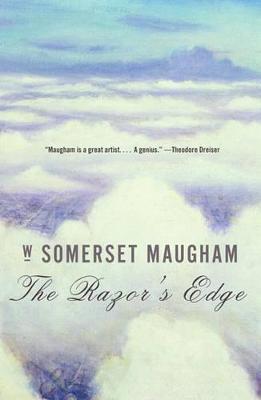“You know, at one time I made quite a little reputation for myself as a humorist by the simple process of telling the truth. It came as such a surprise to most people that they thought I was being funny.”
There are the first thirty pages of a Somerset Maugham book, and then there are the next 200, or 300, or 400 pages that turn it on its head. It’s a game now for me, to form as fast and as sure an opinion of the people he puts in those first thirty pages so the rest of the book can tear it all to shreds. They’re wonderful, one and all. They’re petty, they’re profound, they’re stubborn and righteous and vulnerable and kind and cruel until they’re just stubbornly and profoundly human, defying categorization, defying us to cast the first stone.
Each one is on their own journey. Each one is nowhere near the end. And once again, I’m agreeing with the umbrage Maugham takes (in this paragraph, via Larry) with a God that lacks the common sense to see through all of it:
“I’d known a lot of fellows in the air corps. Of course they got drunk when they got a chance, and had a girl whenever they could, and used foul language; we had one or two bad hats: one fellow was arrested for passing rubber checks and was sent to prison for six months; it wasn’t altogether his fault; he’d never had any money before, and when he got more than he’d ever dreamt of having, it went to his head. I’d known bad men in Paris, and when I got back to Chicago I knew more, but for the most part their badness was due to heredity, which they couldn’t help, or to their environment, which they didn’t choose: I’m not sure that society wasn’t more responsible for their crimes than they were. If I’d been God I couldn’t have brought myself to condemn one of them, not even the worst, to eternal damnation.”
If I say, in the end, it wasn’t quite Of Human Bondage for me, or The Moon and Sixpence, or The Painted Veil, that’s like saying this one rich meal was less rich than the others just because it wasn’t the first. That’s no way to judge it. Thankfully, Maugham puts himself in the book— more an autobiography in parts than a novel— so that I can use his words about Isabel to describe how I feel, always, about Maugham himself:
“I liked her for saying that. One of her most amiable traits was that she was never affronted by the naked truth.”
And I think he’d like me for saying this: Maugham, you son of a bitch.
